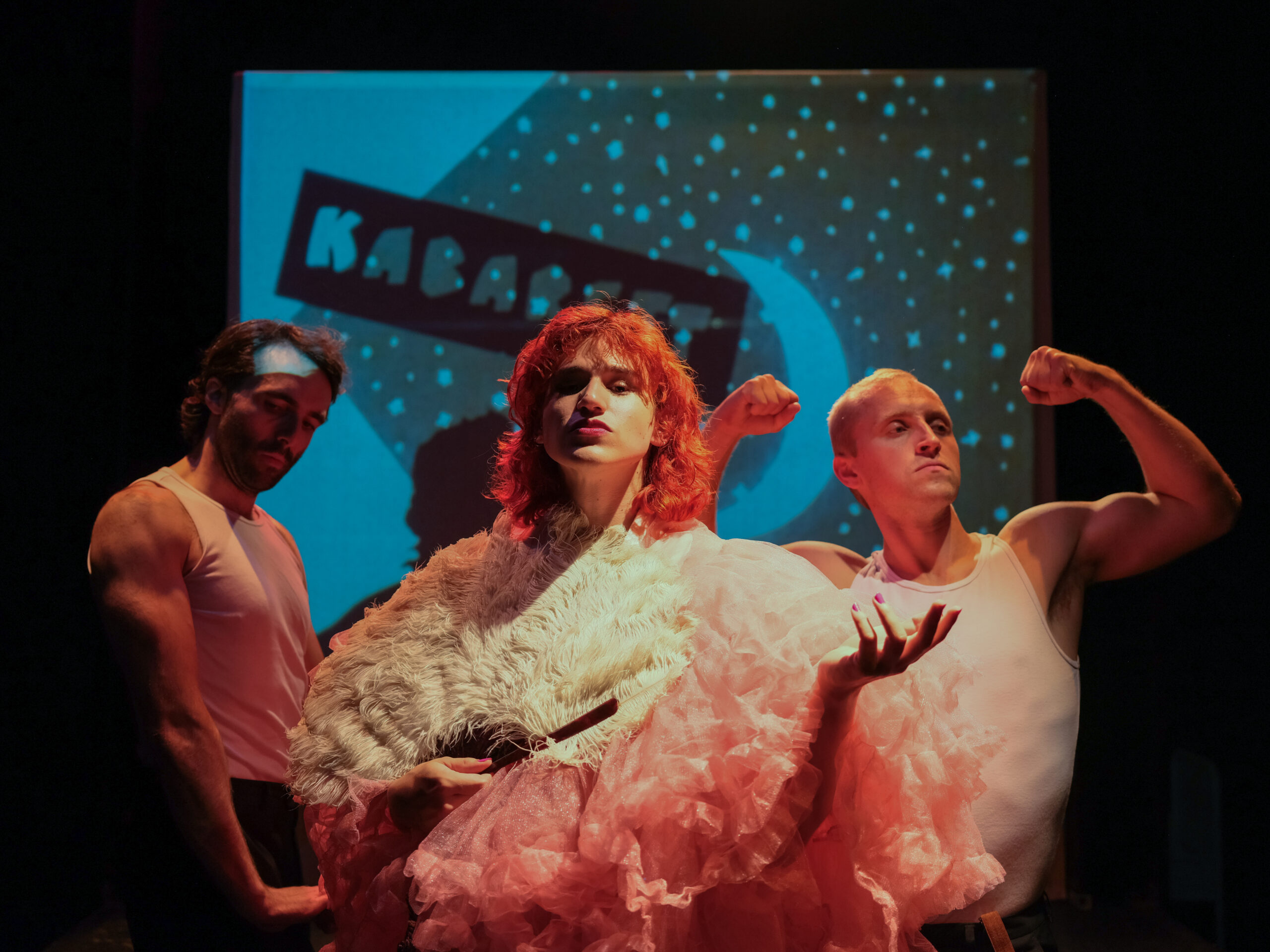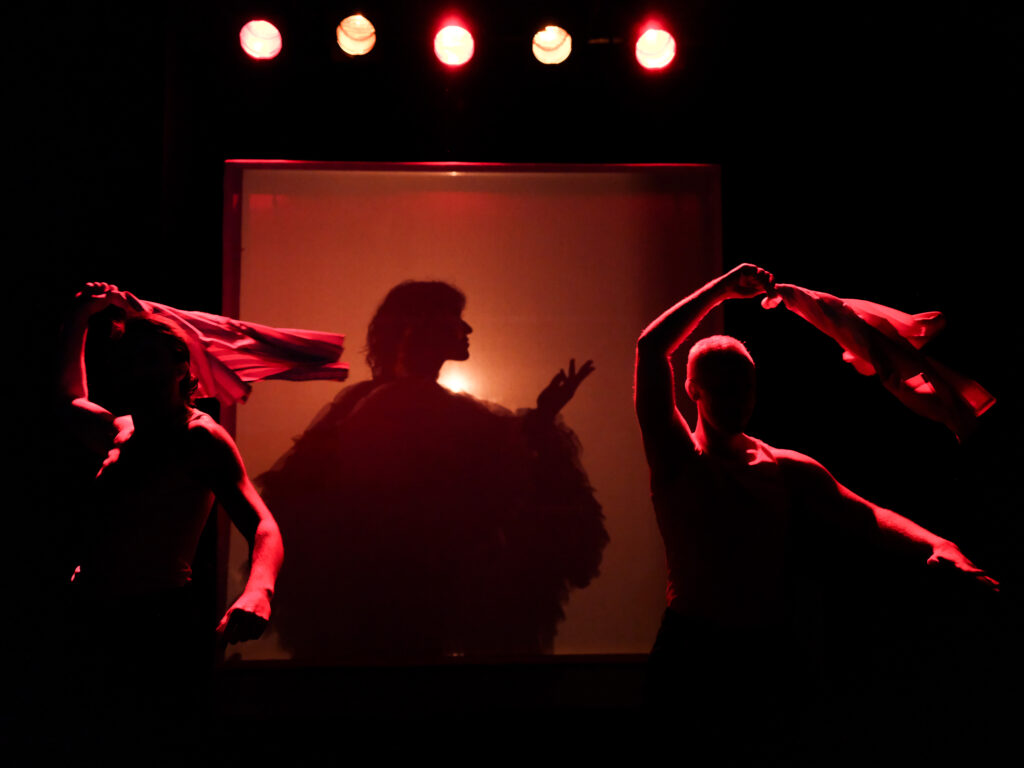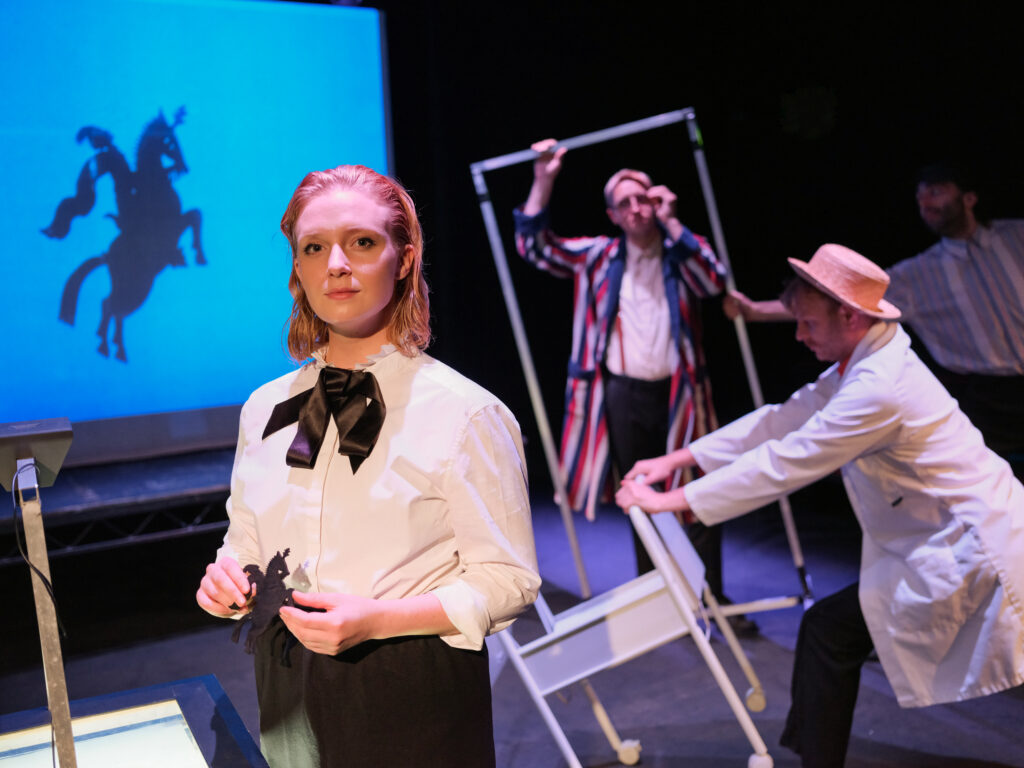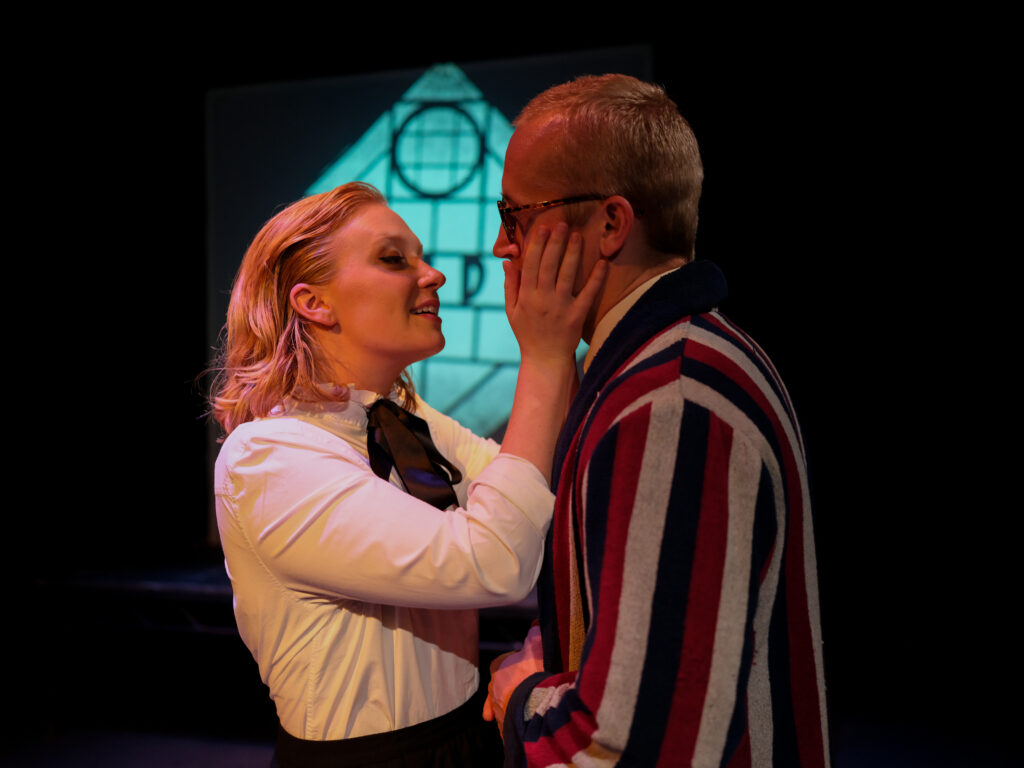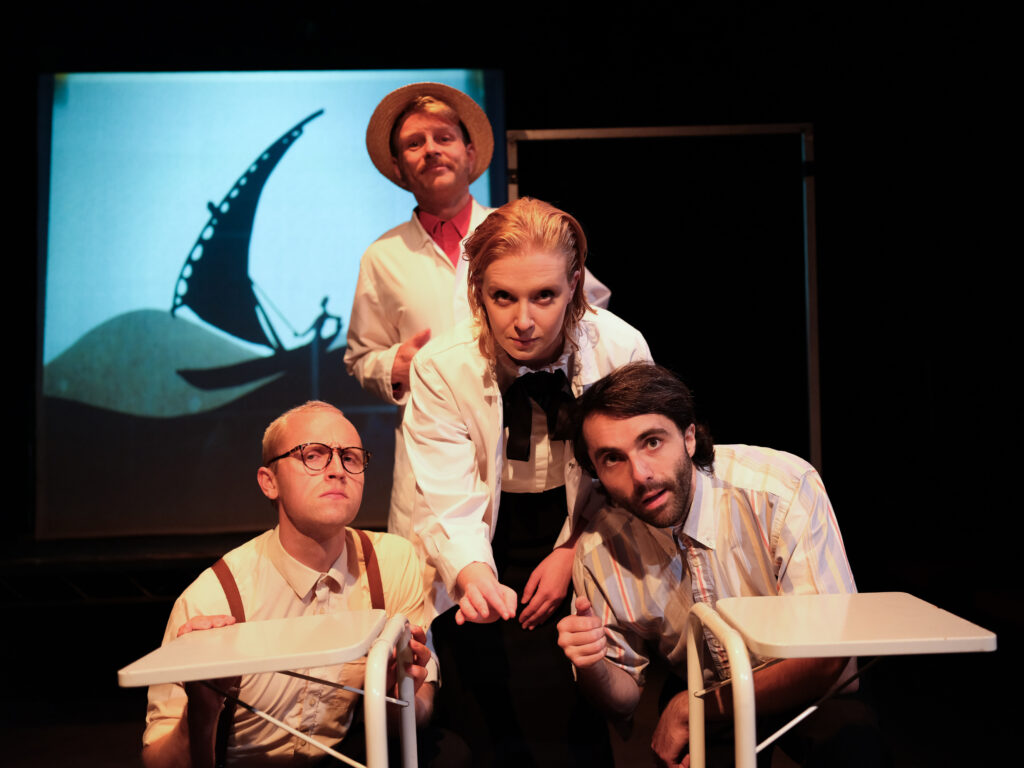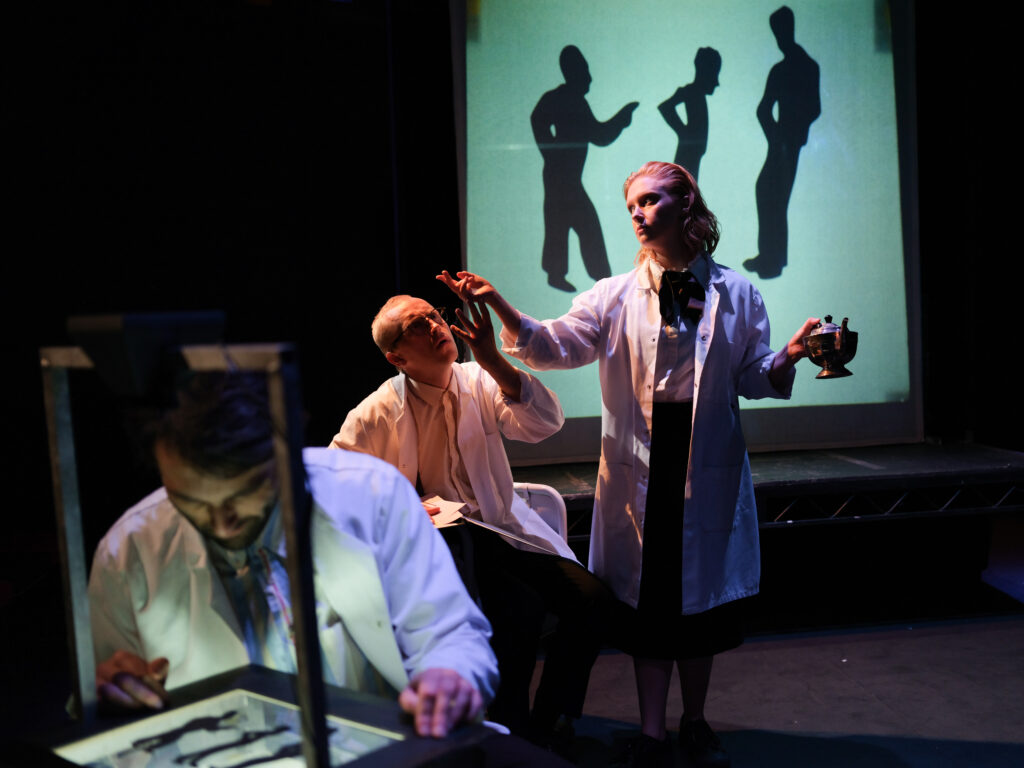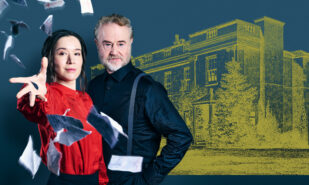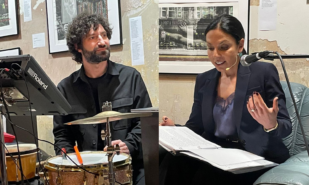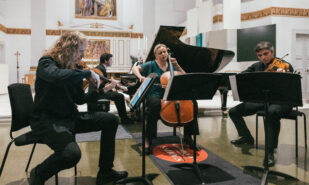The Flight of a Ballerina
The production The Animator by Akimbo Theatre, directed by Rosanna Mallinson and based on her play co-written with Flo Wiedenbach, was the highlight of Oslo Fringe 2023. Now it’s playing in London at the Southwark Playhouse — there are still a few performances left, so you’ve got time to catch it.
The Animator tells the story of Lotte Reiniger, a name known only to those passionate about the history of animation. The creative team behind the show has made her visible to a wider audience, restoring justice, in a way. Reiniger worked with Fritz Lang, Bertolt Brecht, Kurt Weill, Renoir, Pabst — the very elite of world art, right? Why history treated Lotte so unfairly is anyone’s guess. Was it because she had to return to Nazi-occupied Berlin to care for her ailing mother? Because Disney had more money and opportunities in the US? Or simply because she was a woman?.. In short, Reiniger created the first feature-length silhouette animation film. For the full story, you need to see The Animator — a stage biography of her.
Of course, the piece takes artistic liberties; it’s not purely documentary. And yet, there’s plenty of documentary material here too: fragments from Reiniger’s films, which — even almost a century later — make your heart skip a beat with their tenderness, precision, and startling modernity. The play also uses recordings of Reiniger’s own voice in her later years, as she reflects on her life and craft.
The tiny square stage of Southwark’s studio space transforms seamlessly into a subway carriage, a smoky cabaret, or a cramped animation studio. There’s a projector, a screen, a lamp, and delicate paper cut-out puppets. Like Andersen’s little ballerina, they’re so light they threaten to flutter into the flame at the slightest draft — much like the people caught in the terrifying historical moment of the late 1930s to mid-40s.
The actors play animators. If you know these eccentric types, it’s both hilarious and tender to watch. They are strange, almost otherworldly, half-saints. They scream in horror when someone tries to open a window (remember that delicate ballerina and the draft?). They pull their hands away from the animation stand with the same unmistakable gesture as doctors stepping back when they shout, “Clear!”
The people surrounding Lotte aren’t played naturalistically — they move like animated characters themselves. Each has their own sharp, exaggerated plasticity. Each will one day become great, earning their entry in the encyclopedia of world cinema. But here they’re young, poor, and perpetually hungry.
There’s Karl Koch (Halvor Schultz), bespectacled, awkward, meticulously precise, deeply romantic — and Lotte’s future husband. There’s the great Berthold Bartosch (Richard Durning), huge, curly-haired, nervous, moving half-step, half-hop, gesturing like a bird flapping its wings. And there’s Walter Ruttmann (Owen Bleach), with his straw hat and red mustache, a Van Gogh figure emanating a strange heaviness — fittingly, Bleach later embodies the terrifying Censor.
The theme of censorship and fascism creeping over Germany a century ago is rendered with chilling accuracy. At first, no one pays attention, no one believes in this bogeyman under the bed. That’s how it starts: they laugh, they dismiss it — until books are seized, names erased from posters, films banned, artists imprisoned and destroyed. The audience chuckles when the farcical censor and his goons in black caps strut about, like devils on strings. A moment more and the production might tip into grotesque, almost propaganda, but it keeps its balance — like a ballerina poised on pointe.
Again, the ballerina. The image recurs, naturally: The Animator is, in part, a ballet. It brims with physical invention, from dance to slapstick. The show flows from drama to movement pieces, racing forward like a zoetrope’s galloping horse.
In its ninety minutes, the play can’t capture all of Reiniger’s life, so it focuses on her artistic beginnings and her first romance, against the backdrop of Berlin tightening under fascism. Cabaret singer Candy (Flo Wiedenbach) embodies life itself in all its freedom and playfulness — as rich as condensed milk, as intoxicating as liqueur. But the spirit of play cannot survive where films are cut apart with scissors.
At the heart of it all is Lotte herself, played by Lexie Baker. She first appears as an old woman, and thankfully it’s neither comic nor tragic — rather, it evokes the fleeting nature of life, fully lived. Baker navigates the role with mastery, leaping from dance to pantomime to drama within the play’s stylized framework. Watching Lotte emerge as an artist is a joy: jostled nervously in a packed train, stepping timidly into the studio as a shy blonde in a modest skirt and flat shoes, struggling to claim her place among male animators. Her evolution fills the audience with hope. From beloved daughter she becomes director, a bold woman, the Animator herself — despite the horrors of dictatorship and war. At one point she transforms into a furious demon with blazing eyes, ready to tear the censor apart. You can’t help imagining a whole series about her — long, careful, meticulous, like the work of an animator.
In the finale, Lotte glances at Mickey Mouse on the screen and waves. There’s no bitterness, no envy in the gesture. Life is too fascinating to waste on resentment or regret. She’s done too much, lived too fully. And besides, her prince — the delicate black-paper silhouette — still climbs the steps with lightness, again and again.

